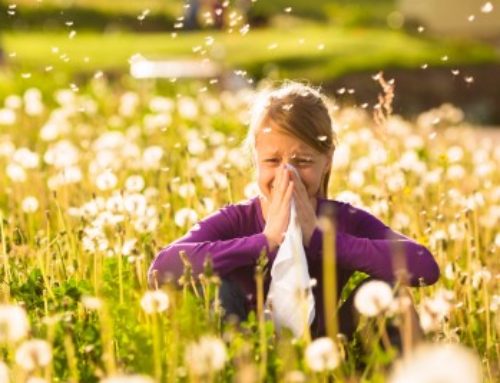 I used to have terrible seasonal allergies. When I attended medical school in Portland, I often biked to class. I remember one particular spring day when I sneezed 27 times while crossing the Hawthorne Bridge!
I used to have terrible seasonal allergies. When I attended medical school in Portland, I often biked to class. I remember one particular spring day when I sneezed 27 times while crossing the Hawthorne Bridge!
I also remember how exhausting it is to be an allergy sufferer. Your eyes and ears are itchy, you just want to unclog yourself and jump out of your own skin. Of course, allergies come with fatigue as well, since the immune system is working so hard and secreting so much cortisol in response to the allergen.
In our last post, we discussed the importance of lowering your overall allergen load in the body in order to avoid the uncomfortable symptoms associated with seasonal allergies. In addition to the steps that we outlined to minimize the impact of environmental allergens, naturopathic medicine can help. There are several naturopathic treatments to help stop and prevent allergies. We’ll explore a few of them below:
- Vitamin C: Good old Vitamin C does so many great things for the body. When it comes to allergies, Vitamin C balances the immune system, making it less likely to go into full-attack mode when it is exposed to an allergen.
- Flavonoids: Flavonoids are found in foods such as berries. One flavonoid in particular, quercetin, helps stabilize mast cells. Mast cells are part of the immune system and are responsible for secreting histamine. Taking flavonoids will calm and stabilizes mast cells in the body.
- Nettles: Nettles as tea or supplement acts as a tonic in the body, helping to eliminate toxins and allergens that might be irritating to the body.
- Chinese Herbal Formulas: This is my go-to method of treating allergies in my patients. I find this to be the most effective and efficient way to stop allergy symptoms in their tracks within a few days by resolving phlegm and calming the immune response. It’s also good to know what’s causing the reaction so that you can avoid it. What is your experience with seasonal allergies? Share your comments below.
It’s also good to know what’s causing the reaction so that you can avoid it. What is your experience with seasonal allergies? Share your comments below.




